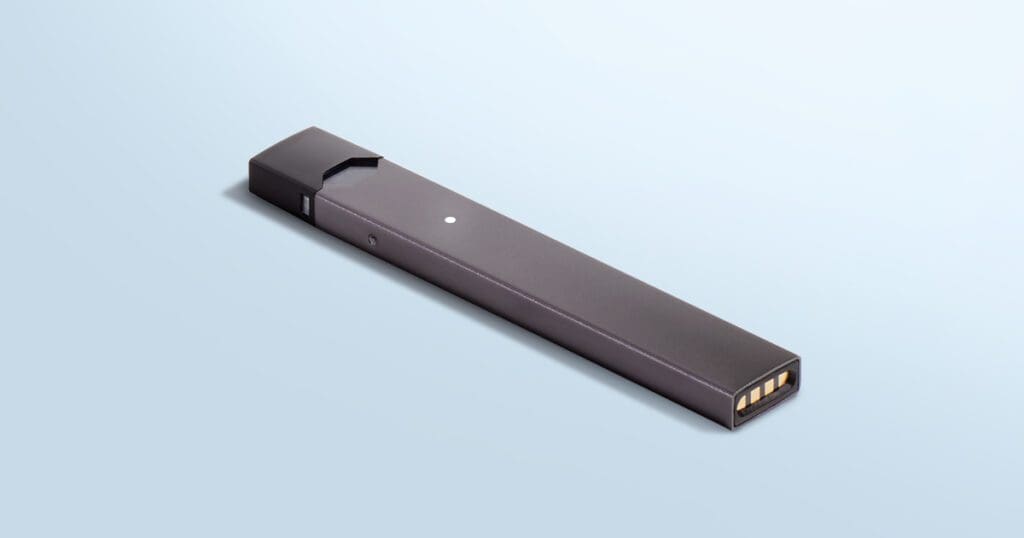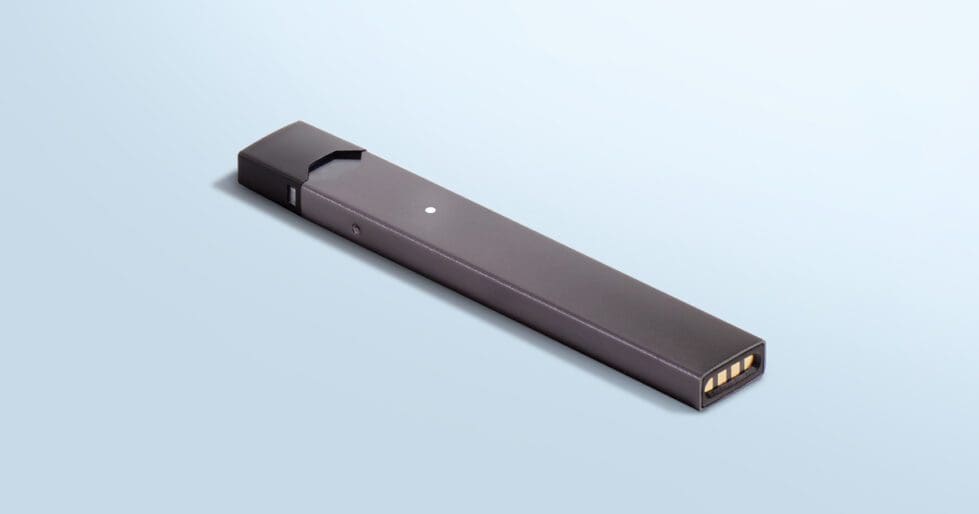

(JUUL Labs)
A $438.5 million agreement between e-cigarette maker JUUL Labs and 34 states and territories has been reached over the alleged role they played in getting a new generation of Americans hooked on nicotine.
Delaware stands to recover between $7.8 million and $8.5 million under the agreement, according to Attorney General Kathy Jennings.
The “agreement in principle” comes as the result of a two-year-long bipartisan investigation into JUUL’s marketing and sales practices.
In addition to the financial terms, the settlement would force JUUL to comply with a series of strict injunctive terms severely limiting their marketing and sales practices, according to Jennings.
“Our greatest responsibility is to our children,” Jennings said in a press release Tuesday. “Delaware and our sister states have spent decades educating kids and adults alike on the dangers of smoking. JUUL’s conduct contributed to a troubling backslide in that work.”
Thanks to JUUL, she said, there’s been an “explosion of e-cigarette use” by teenagers who, for the first time in a generation, are seeing more ads for nicotine, not fewer—to say nothing of misleading claims about these products’ safety.”
According to the news release, until recently, JUUL was the dominant player in the vaping market.
“The multistate investigation revealed that JUUL rose to this position by willfully engaging in an advertising campaign that appealed to youth, even though its e-cigarettes are both illegal for them to purchase and are unhealthy for youth to use,” the attorney general’s office said.
JUUL relentlessly marketed to underage users with launch parties, advertisements using young and trendy-looking models, social media posts and free samples, Jennings said.
It marketed a technology-focused, sleek design that could be easily concealed and sold its product in flavors known to be attractive to underage users, such as mango, mint, creme, cucumber, fruit, menthol, classic tobacco and Virginia tobacco.
JUUL also manipulated the chemical composition of its product to make the vapor less harsh on the throats of young and inexperienced users, according to Jennings. To preserve its young customer base, the company relied on age verification techniques it knew were ineffective.
The investigation further revealed that JUUL’s original packaging was misleading in that it did not clearly disclose that it contained nicotine and implied that it contained a lower concentration of nicotine than it actually did, the attorney general said. Consumers were misled to believe that consuming one JUUL pod was the equivalent of smoking one pack of combustible cigarettes. The company also misrepresented that its product was a smoking cessation device without FDA approval to make such claims.
The states involved are in the process of finalizing and executing the settlement documents, a process that takes approximately 3-4 weeks.
The $438.5 million would be paid out over a period of six to ten years, with the payments increasing the longer the company takes to make the payments.
If JUUL chooses to extend the payment period up to ten years, the final settlement would reach $476.6 million. Both the financial and injunctive terms exceed any prior agreement JUUL has reached with states to date.
As part of the settlement, JUUL has agreed to refrain from:
- Youth marketing
- Funding education programs
- Depicting persons under age 35 in any marketing
- Use of cartoons
- Paid product placement
- Sale of brand name merchandise
- Sale of flavors not approved by FDA
- Allowing access to websites without age verification on landing page
- Representations about nicotine not approved by FDA
- Misleading representations about nicotine content
- Sponsorships/naming rights
- Advertising in outlets unless 85 percent audience is adult
- Advertising on billboards
- Public transportation advertising
- Social media advertising (other than testimonials by individuals over the age of 35, with no health claims)
- Use of paid influencers
- Direct-to-consumer ads unless age-verified
- Free samples
The agreement also includes sales and distribution restrictions, including where the product may be displayed and accessed in stores, online sales limits, retail sales limits, age verification on all sales, and a retail compliance check protocol.


Charlie Megginson covers government and politics for Delaware LIVE News. Reach him at (302) 344-8293 or [email protected]. Follow him on Twitter @cmegginson4.
Share this Post


